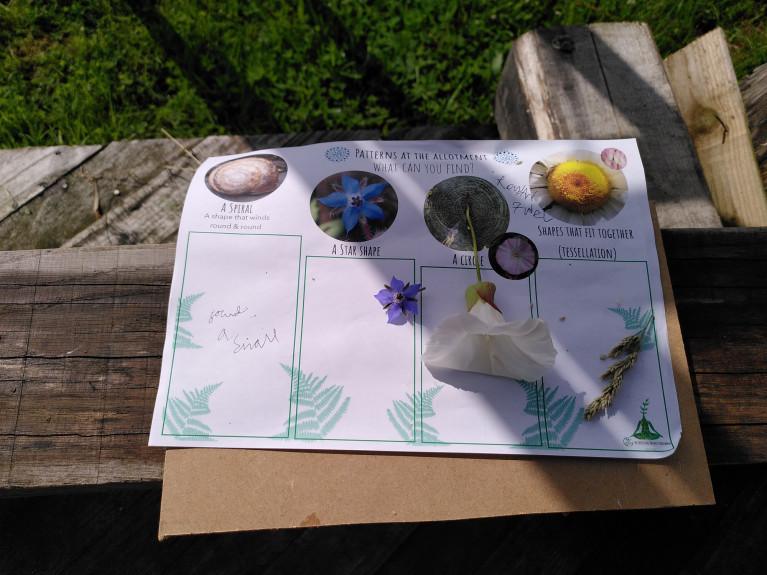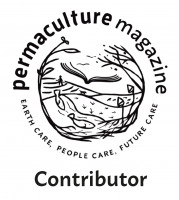
Our Noticing Nature Programme
A programme designed to help young people reconnect with nature in a meaningful way.
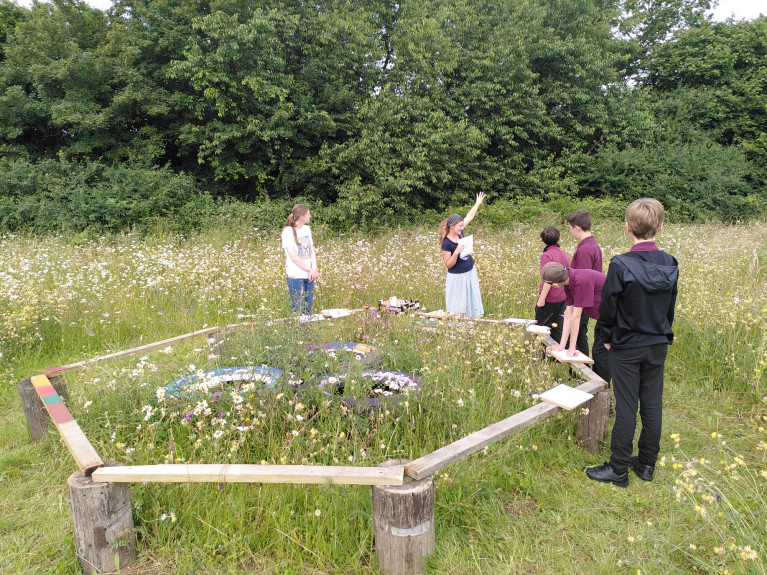
As an educational charity, we are only too aware of the fundamental importance for the next generation to be far better connected to nature than at present. There is a major concern that young people are growing up with 'Nature Deficit Disorder' and that in our current world of the 'Googlization of everything', young people are often found to be on a game console or mobile phone. The Papillon Project is deeply concerned that young people will grow up without a real understanding or connection with nature whilst facing increasing pressures in a fast-paced world. Therefore, fostering a deeper connection to and relationship with nature is essential for both people and the planet. The Noticing Nature Programme is a programme that hopes to inspire young people to literally 'notice nature' and 'slow down' while they are visiting their school allotment through an inclusive, youth-led and accessible approach. Activities will involve actively engaging with nature by helping young people to see patterns in nature, engaging the senses and exploring what makes plants happy.
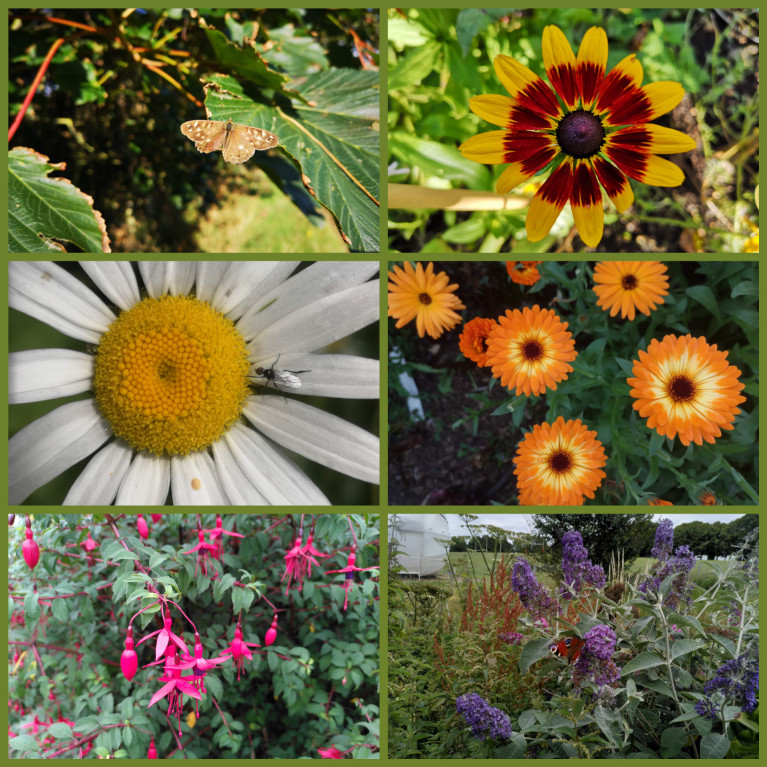
The Noticing Nature Programme takes the form of impact days and seasonal sessions during July.
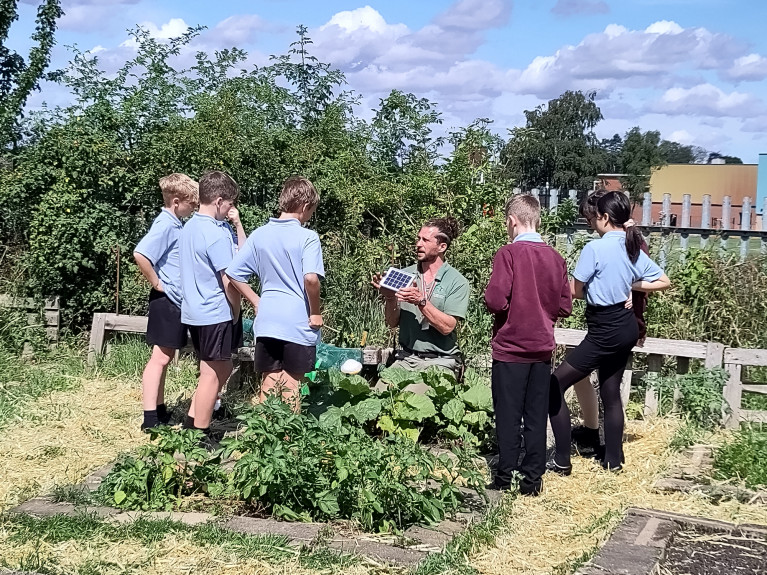
Rewilding Zones:
The Noticing Nature Programme also explores the importance of understanding 'rewilding' areas at school allotments. We advocate designated 'rewilding zones' at school allotments for all schools that we are privileged to work with. It's incredibly important for young people to see what happens when we just leave nature to it, explore how this can be balanced with sustainable food growing and see how successful nature is without interference!
Below: A 'rewilding zone' at Aylsham High School's allotment
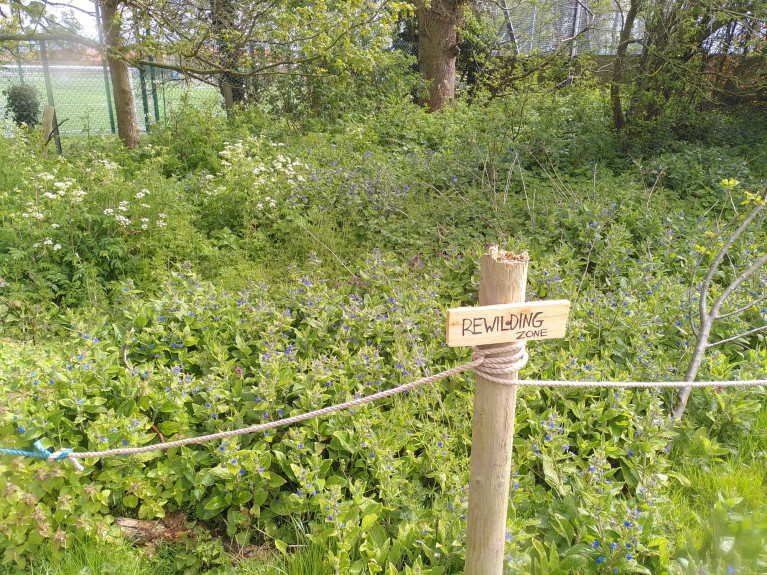
Online resources:
We have a collection of resources, created by our Noticing Nature Programme Lead, Holly Chantrill-Cheyette, available to download for free via our online resources page (please click here).
